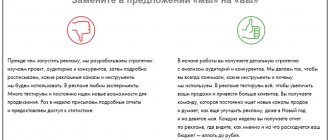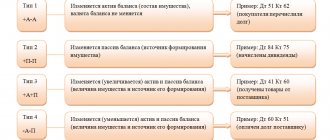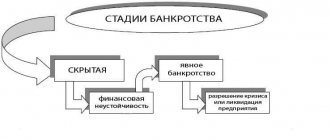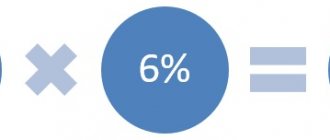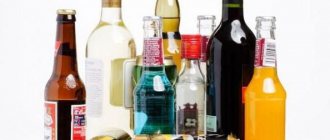General information about excisable goods
Excise goods are a type of goods that are subject to a special tax - excise tax.
Excise tax is a type of indirect tax in the form of a surcharge on the cost of goods, introduced by the state to fill the state budget, as well as to regulate demand for a particular type of goods. Excise goods have a common feature: they are all highly profitable and have low production costs, which makes them very attractive from a tax point of view. Today, budget revenues from excise tax revenues amount to about 5–8% of total tax revenues, which is undoubtedly a very high figure. Both goods produced on the territory of the Russian Federation and those imported are considered excisable.
The payer of excise tax to the budget is an organization, individual entrepreneur or other person that carries out operations for the sale or production of excisable goods.
For more information about who should pay the tax, read the article “ Who are the payers of excise taxes (nuances)?”
How to pay excise taxes is explained in detail in ConsultantPlus:
If you don't have legal access, a full access trial is available for free.
What goods are excisable?
The group of excisable goods in the Russian Federation is constantly changing. However, there are a number of products that have always been included in it and will not leave in the near future. These goods are excisable not only in our country, but also in almost all countries of the world. The list of such goods is established in Art. 181 of the Tax Code of the Russian Federation, according to which excisable goods include:
- Ethanol.
- Alcohol-containing goods in which the share of ethyl alcohol is more than 9%, with the exception of alcoholic products. Also exceptions in this case include:
- medicines;
- veterinary products bottled in containers not exceeding 100 ml in volume;
- perfumery and cosmetic products, the volume of which does not exceed 100 ml, and the proportion of alcohol is 80 and 90%, with a spray bottle, as well as with the proportion of ethyl alcohol up to 90% and a volume not exceeding 3 ml;
- waste from the production of ethyl alcohol, as well as alcoholic beverages, subject to their further processing and use for technical purposes;
- wine materials, wine, fruit and beer wort.
- Alcohol products.
- Tobacco products.
- Cars.
- Motorcycles with power exceeding 112.5 kW (150 hp).
- Automotive gasoline.
- Diesel fuel.
- Motor oils for injection and diesel engines.
- Straight-run gasoline.
- Aviation kerosene.
- Orthoxylene, paraxylene, benzene.
- Other mixtures of hydrocarbons in a liquid state.
- Natural gas.
- E-Sigs.
- Liquids for electronic cigarettes.
- Tobacco and products made from it, consumed by heating.
- Petroleum raw materials.
- Grapes used for wine production (from 01/01/2020).
List of excisable goods
| Name of excisable goods | Base |
| Ethyl alcohol produced from food or non-food raw materials, including: – denatured; – raw alcohol; – alcohol distillates (wine, grape, fruit, cognac, calvados, whiskey) | subp. 1 clause 1 art. 181 Tax Code of the Russian Federation |
| Alcohol-containing products (solutions, emulsions, suspensions and other types of products in liquid form) with a volume fraction of ethyl alcohol of more than 9 percent, except for alcoholic products | subp. 2 p. 1 art. 181 Tax Code of the Russian Federation |
| Alcohol products (vodka; alcoholic beverages; cognacs; wines, including fruit, liqueur, sparkling (champagne); wine drinks; cider, poiret, mead; beer; drinks made from beer; other drinks with a volume fraction of ethyl alcohol more than 0.5%) | subp. 3 p. 1 art. 181 Tax Code of the Russian Federation |
| Tobacco products | subp. 5 p. 1 art. 181 Tax Code of the Russian Federation |
| Passenger cars | subp. 6 clause 1 art. 181 Tax Code of the Russian Federation |
| Motorcycles with engine power over 112.5 kW (150 hp) | subp. 6.1 clause 1 art. 181 Tax Code of the Russian Federation |
| Automotive gasoline | subp. 7 clause 1 art. 181 Tax Code of the Russian Federation |
| Diesel fuel | subp. 8 clause 1 art. 181 Tax Code of the Russian Federation |
| Motor oils for diesel and (or) carburetor (injection) engines | subp. 9 clause 1 art. 181 Tax Code of the Russian Federation |
| Straight-run gasoline | subp. 10 p. 1 art. 181 Tax Code of the Russian Federation |
| Middle distillates | subp. 11 clause 1 art. 181 Tax Code of the Russian Federation |
| Benzene, paraxylene, orthoxylene | subp. 12 clause 1 art. 181 Tax Code of the Russian Federation |
| Aviation kerosene | subp. 13 clause 1 art. 181 Tax Code of the Russian Federation |
| Natural gas (in cases provided for by international treaties of the Russian Federation) | subp. 14 clause 1 art. 181 Tax Code of the Russian Federation |
1 The following are not recognized as excisable goods:
- medicines that have passed state registration with the Ministry of Health of Russia and are included in the State Register of Medicines, medicines (including homeopathic medicines) manufactured by pharmacy organizations according to prescriptions for medicines and the requirements of medical organizations, poured into containers in accordance with the requirements of regulatory documentation agreed with Russian Ministry of Health;
- veterinary drugs that have passed state registration in Rosselkhoznadzor and are included in the State Register of Registered Veterinary Drugs developed for use in animal husbandry on the territory of the Russian Federation, bottled in containers of no more than 100 ml;
- perfumery and cosmetic products bottled in containers of no more than 100 ml, with a volume fraction of ethyl alcohol up to 80 percent inclusive and (or) perfumery and cosmetic products with a volume fraction of ethyl alcohol up to 90 percent inclusive with a spray bottle on the bottle, bottled in containers no more 100 ml, as well as perfume and cosmetic products with a volume fraction of ethyl alcohol up to 90 percent inclusive, bottled in containers up to 3 ml inclusive;
- waste subject to further processing and (or) use for technical purposes, generated during the production of ethyl alcohol from food raw materials, vodka, alcoholic beverages, complying with regulatory documentation approved (agreed upon) by the federal executive body;
- wine materials;
- wort: grape, other fruit, beer.
This is stated in subparagraph 2 of paragraph 1 of Article 181 of the Tax Code of the Russian Federation.
2Straight-run gasoline refers to gasoline fractions (except for motor gasoline, aviation kerosene, benzene, paraxylene, orthoxylene and petrochemical products) obtained as a result of:
- distillation (fractionation) of oil, gas condensate, associated petroleum gas, natural gas;
- processing (chemical transformations) of oil shale, coal, oil fractions, gas condensate fractions, associated petroleum gas, natural gas.
In this case, the gasoline fraction is not:
- fraction obtained as a result of alkylation (oligomerization) of hydrocarbon gases;
- a fraction in which the mass fraction of methyl tert-butyl ether and (or) other ethers and (or) alcohols is at least 85 percent;
- the fraction obtained as a result of the oxidation and esterification of olefins, aromatic hydrocarbons, alcohols, aldehydes, ketones, carboxylic acids;
- fraction obtained as a result of hydrogenation, hydration and dehydrogenation of alcohols, aldehydes, ketones, carboxylic acids;
- fraction, mass fraction of benzene, and (or) toluene, and (or) xylene (including paraxylene and orthoxylene) in which is not less than 85 percent;
- a fraction in which the mass fraction of pentane and (or) isopentane is at least 85 percent;
- a fraction in which the mass fraction of alphamethylstyrene is at least 95 percent.
This is stated in subparagraph 10 of paragraph 1 of Article 181 of the Tax Code of the Russian Federation.
3 Middle distillates are mixtures of hydrocarbons in a liquid state (at a temperature of 20 degrees Celsius and an atmospheric pressure of 760 mm Hg), which are obtained as a result of primary and (or) secondary processing of oil, gas condensate, associated petroleum gas, oil shale and at the same time correspond to the following physical and chemical characteristics:
- density not less than 750 kg/cubic. m and no more than 930 kg/cubic. m at a temperature of 20 degrees Celsius;
- the value of the temperature at which at least 90 percent of the mixture is distilled by volume (at an atmospheric pressure of 760 mm Hg) is in the range of not lower than 215 degrees Celsius and not higher than 360 degrees Celsius.
This is stated in subparagraph 11 of paragraph 1 of Article 181 of the Tax Code of the Russian Federation.
4 Benzene is understood as a liquid that contains in its mass 99 percent of the corresponding simplest aromatic hydrocarbon (subclause 12, clause 1, article 181 of the Tax Code of the Russian Federation).
5 Paraxylene or orthoxylene is understood as a liquid that contains in its mass 95 percent of the corresponding isomer of xylene or dimethylbenzene (subclause 12, clause 1, article 181 of the Tax Code of the Russian Federation).
Types of excisable goods
The entire list of excisable goods can be divided into 2 main groups:
- Subject to mandatory labeling.
- Not subject to mandatory labeling.
Group 1, as a rule, includes tobacco products packaged for retail sale and alcoholic products in containers from 50 ml to 100 l, with the exception of beer, cider, mead, as stated in paragraph 2 of Art. 12 of the Law “On state regulation of the production and turnover of ethyl alcohol, alcoholic and alcohol-containing products...” dated November 22, 1995 No. 171.
Goods not subject to labeling include all other goods from the list of excisable goods. Let's list some of them:
- cars;
- motorcycles with a power exceeding 112.5 kW (150 hp);
- motor gasoline;
- diesel fuel;
- motor oils for injection and diesel engines.
Commentary on Article 181 of the Tax Code of the Russian Federation
The commented article defines a list of excisable goods.
Excise goods include:
— ethyl alcohol from all types of raw materials (with the exception of cognac alcohol);
— alcohol-containing products with a volume fraction of ethyl alcohol of more than 9%;
— alcoholic products;
- beer;
— tobacco products;
— passenger cars;
— motorcycles with engine power over 112.5 kW (150 hp);
— motor gasoline;
- diesel fuel;
— motor oils for diesel and (or) carburetor (injection) engines;
— straight-run gasoline.
Ethanol
In accordance with paragraph 1 of Art. 181 of the Tax Code of the Russian Federation, ethyl alcohol is recognized as an excisable product. It includes all types of ethyl alcohols (with the exception of cognac), regardless of their concentration, the type of raw materials from which they are produced, and the standard and technical documentation according to which they are manufactured (according to GOSTs, TUs, OSTs or pharmacopoeial articles).
According to the pharmacopoeial articles FS 42-3071-94 and FS 42-3072-94, the products manufactured according to them, representing a medicinal product, are not alcohol-containing products, but ethyl alcohol, and it is under this name that they are included in the State Register of Medicines and Medical Products.
Since in paragraph 1 of Art. 181 of the Tax Code of the Russian Federation does not provide for the exclusion from the list of excisable goods of ethyl alcohol produced in accordance with the specified pharmacopoeial articles, regardless of the fact that this alcohol is registered as a medicinal product, it is an excisable product.
Cognac alcohol is not recognized as an excisable product if two conditions are met:
1) if, in accordance with Federal Law No. 171-FZ of November 22, 1995 “On state regulation of the production and circulation of ethyl alcohol, alcoholic and alcohol-containing products,” it is produced in accordance with state standards and technical specifications approved by the authorized federal executive body;
2) if, in accordance with Decree of the Government of the Russian Federation of July 23, 1996 N 874 “On the introduction of state registration of ethyl alcohol from food raw materials, alcoholic, alcohol-containing food products and other alcohol-containing products,” it has passed state registration with the Ministry of Agriculture and Food of the Russian Federation.
If before January 1, 2001, denatured alcohol was completely exempt from excise taxes, then after this date this alcohol is recognized as an excisable product in accordance with paragraphs. 1 clause 1 art. 181 Tax Code of the Russian Federation. However, subject to the conditions provided for in Art. 183 of the Code, as amended, was in force until the end of 2005, operations for the sale of denatured ethyl alcohol and denatured alcohol-containing products were exempt from paying excise taxes. From January 1, 2006, in accordance with the amendments made by Federal Law of July 21, 2005 N 107-FZ, from Art. 183 of the Code excludes provisions on exemption from excise taxes for these operations.
Alcohol-containing products
In accordance with paragraphs. 2 p. 1 art. 181 of the Tax Code of the Russian Federation, excisable goods are alcohol-containing products with a volume fraction of ethyl alcohol of more than 9 percent (solutions, emulsions, suspensions and other types of products in liquid form).
From January 1, 2001, the range of excisable goods also included denatured alcohol-containing products, which until that time were not subject to excise taxes. Operations for the sale of these products are subject to excise taxes from January 1, 2006. Corresponding amendments to Ch. 22 of the Tax Code of the Russian Federation was introduced by Federal Law of July 21, 2005 N 107-FZ.
In addition to alcohol-containing products with a volume fraction of ethyl alcohol up to 9 percent inclusive, the alcohol-containing products listed below are not recognized as excisable goods.
Federal Law No. 134-FZ of July 26, 2006 introduced significant changes to the procedure for calculating and paying excise taxes. There have been changes to the list of goods that are not recognized as excisable. First, please note the following. If the wording of Art. 181, valid until January 1, 2007, it is written “for the purposes of this chapter the following alcohol-containing products are not considered as excisable goods,” then in the new edition this phrase reads: “The following goods are not considered as excisable goods.” What is the significance of this amendment? Let me remind you that at the beginning of 2006 the question arose whether the head fraction of ethyl alcohol, which, on the one hand, is a waste of alcohol production, and on the other, was classified as a waste product by Federal Law of November 22, 1995 N 171-FZ. the concept of "ethyl alcohol". Now, after changing the wording of Art. 181 of the Tax Code of the Russian Federation, for excise taxation it does not matter whether this waste is an alcohol-containing product or ethyl alcohol. The head fraction of ethyl alcohol is exempt from paying excise taxes, since, as already mentioned, it is a waste product of alcohol production. But this is not the only change that concerns alcohol and liquor production waste. From Art. 181 excludes the provision that in order to be exempt from excise taxes on such waste it is necessary that they be included in the State Register of Ethyl Alcohol from Food Raw Materials, Alcohol and Alcohol-Containing Products in the Russian Federation. The fact is that the need to maintain such a register is excluded from Federal Law of November 22, 1995 N 171-FZ.
Medicinal, therapeutic and prophylactic,
diagnostic tools
The following are not subject to excise taxes:
— medicinal, treatment-and-prophylactic, diagnostic products that have passed state registration with the authorized federal executive body and are included in the State Register of Medicines and Medical Products;
- medicinal, therapeutic and prophylactic products (including homeopathic drugs), manufactured by pharmacies according to individual recipes and the requirements of medical organizations.
Thus, the basis for exemption from paying excise taxes on these products is their registration by the Ministry of Health and Social Development of the Russian Federation, and when they are manufactured by pharmacy organizations according to individual recipes and the requirements of medical organizations - recipes and requirements certified in the prescribed manner.
The commented article provides for the exclusion from the list of excisable goods of alcohol-containing medicines dispensed not only according to individual prescriptions, but also according to the requirements of medical organizations.
It should be borne in mind that one of the conditions for the exemption of alcohol-containing medicines from excise taxes is the sale of these products by the organizations producing them in containers that meet the requirements of state standards of medicines (pharmacopoeial articles), approved by the authorized federal executive body. If the medicine is made according to an individual prescription, then it must be poured into the container prescribed by the doctor's prescription.
According to Art. 17 of the Federal Law of June 22, 1998 N 86-FZ “On Medicines”, the manufacture of medicines in a pharmacy is carried out according to doctors’ prescriptions based on medicines registered in Russia. In accordance with Art. 19 of Law N 86-FZ, medicines manufactured in pharmacies according to doctors’ prescriptions are not subject to state registration. Pharmacies are obliged to sell medicines only in quantities necessary to fulfill medical prescriptions (Article 32 of Law No. 86-FZ). Consequently, in the case of the manufacture of medicinal and therapeutic and prophylactic products (including homeopathic drugs) by pharmacies, in order to recognize these products as non-excise goods, recipes and requirements of medical organizations must contain data on the dosage of the drug and be certified in the prescribed manner. At the same time, taking into account the specifics of the manufacture of alcohol-containing medicines according to individual recipes and the requirements of medical organizations, the requirement to bottle them in containers determined by pharmacopoeial articles does not apply to the conditions for the exemption of these drugs from excise taxes.
The production of alcohol-containing medicines according to pharmacopoeial articles included in the State Register of Medicines is carried out only by organizations that have licenses for the production of medicines, in accordance with quotas for the purchase of ethyl alcohol issued by the Ministry of Health and Social Development of the Russian Federation. This is established in the Decree of the Government of the Russian Federation of August 27, 1999 N 967 “On the production and circulation of alcohol-containing medicines and perfumery and cosmetic products (products).”
Veterinary drugs
Veterinary drugs that have undergone state registration with the authorized federal executive body and are included in the State Register of Registered Veterinary Drugs developed for use in animal husbandry on the territory of the Russian Federation are not subject to excise taxes.
Thus, in order to be exempt from excise taxes, these products must be registered with the Ministry of Agriculture and Food of the Russian Federation and entered into the State Register of Registered Veterinary Drugs developed for use in livestock farming on the territory of the Russian Federation. Veterinary drugs are not excisable goods only if they are bottled in containers of no more than 100 ml.
Perfume and cosmetic products
Perfumery and cosmetic products that have passed state registration with the authorized federal executive body, which since October 1, 1999, in accordance with the above-mentioned Decree of the Government of the Russian Federation of August 27, 1999 N 967, are not subject to excise taxes. .
Thus, in order to receive excise tax benefits on alcohol-containing perfumery and cosmetic products, the taxpayer must submit to the tax authorities a registration certificate issued by the Ministry of Health and Social Development of the Russian Federation, which must indicate that the product is classified as an alcohol-containing perfumery and cosmetic product.
Please note: From January 1, 2006, in order to recognize alcohol-containing perfumery and cosmetic products as non-excisable goods, they must be bottled in containers of no more than 100 ml (until 2006 - no more than 270 ml). The corresponding amendment was introduced by Federal Law No. 86-FZ of July 28, 2004 “On Amendments to Chapter 22 of Part Two of the Tax Code of the Russian Federation.”
In addition, according to the Federal Law of July 21, 2005 N 107-FZ, from January 1, 2006, perfume and cosmetic products in metal aerosol packaging are not excisable goods.
Federal Law No. 134-FZ of July 26, 2006 introduced significant changes to the procedure for calculating and paying excise taxes. From January 1, 2007, household chemical goods in metal aerosol packaging and perfumery and cosmetic products in metal aerosol packaging will be recognized as excisable.
As for perfumery and cosmetic products in other packaging, they will continue to be exempt from excise taxes, but the conditions under which this exemption is granted have changed. Such products should contain no more than 90% alcohol (inclusive) if there is a spray bottle on the bottle (i.e., in practice, it should also be an aerosol package). At the same time, the requirement for state registration of these products and that they must be bottled in containers of no more than 100 ml remains.
Alcohol-containing waste
Waste generated during the production of ethyl alcohol from food raw materials, vodka, alcoholic beverages, subject to further processing and (or) use for technical purposes is not subject to excise taxes. The specified waste must comply with regulatory documentation approved (agreed upon) by the federal executive body, and must be included in the State Register of Ethyl Alcohol from Food Raw Materials, Alcohol and Alcohol-Containing Products in the Russian Federation.
Thus, alcohol-containing waste is exempt from excise taxes, subject to the following conditions:
1) there is a state registration certificate;
2) products are sent for further processing or used for technical purposes.
The organization and conduct of state registration of alcohol-containing waste generated during the production of ethyl alcohol from food raw materials, vodka, alcoholic beverages and subject to further processing or use for technical purposes is entrusted to the Ministry of Agriculture and Food of the Russian Federation.
In some cases, alcohol-containing waste is not used for processing, is not sold, but is sent for destruction. Should excise tax be charged in this case? To answer this question, remember that waste disposal is not recognized as an operation subject to excise taxes. Consequently, when destroying alcohol production waste, excise taxes are not charged.
Household chemicals in aerosol packaging
Household chemicals in aerosol packaging are not subject to excise taxes. In accordance with the amendments made to the commented article by Federal Law No. 57-FZ of May 29, 2002 “On introducing amendments and additions to part two of the Tax Code of the Russian Federation and to certain legislative acts of the Russian Federation”, from January 1, 2002 dated Only those household chemicals packaged in metal aerosol packaging are exempt from paying excise taxes.
Alcohol products
According to paragraphs. 3 p. 1 art. 181 of the Tax Code of the Russian Federation, excisable goods are alcoholic products, which include drinking alcohol, vodka, alcoholic beverages, cognacs, wine and other food products with a volume fraction of ethyl alcohol of more than 1.5%.
Wine materials, in accordance with the Tax Code of the Russian Federation, are not included in the list of excisable goods. Consequently, excise taxes are not charged on them.
Cars and motorcycles
In accordance with paragraphs. 6 clause 1 art. 181 of the Tax Code of the Russian Federation, the list of excisable goods includes passenger cars and motorcycles with an engine power exceeding 112.5 kW.
The classification of motor vehicles used for the transport of passengers is regulated by GOST R 52051-2003 “Motor vehicles and trailers. Classification and definitions".
According to the specified GOST, vehicles used to transport passengers and having, in addition to the driver’s seat, no more than eight seats, belong to passenger cars (category M1). If there are more than eight such seats, these vehicles are classified as buses (category M2, M3).
Based on the above, if vehicles (in particular, minibuses) have no more than eight passenger seats, they are recognized as excisable goods. If there are more than eight passenger seats, the vehicle is not subject to excise tax.
Straight-run gasoline
Clause 4 of Art. 1 of the Federal Law of July 24, 2002 N 110-FZ “On introducing amendments and additions to part two of the Tax Code of the Russian Federation and some other acts of legislation of the Russian Federation”, which came into force on January 1, 2003, the list of excisable goods was supplemented straight-run gasoline.
The inclusion of straight-run gasoline in the list of excisable goods to a certain extent helps to solve the problem of its use for the purpose of illegal production of excisable petroleum products. As is known, the technology for the production of motor gasoline makes it possible to obtain it not only by processing petroleum products at an oil refinery, but also by mixing straight-run gasoline with the necessary chemical additives in railway tanks, in fuel trucks, and directly in the storage facilities of gas stations. Volumes of gasoline obtained by mixing were in most cases exempt from excise taxation, since straight-run gasoline was not subject to excise tax, was exported from factories, and after the above technological operation was sold as high-octane gasoline.
Under straight-run gasoline for the purposes of Ch. 22 of the Tax Code of the Russian Federation refers to gasoline fractions obtained as a result of refining oil, gas condensate, associated petroleum gas, natural gas, oil shale, coal and other raw materials, as well as products of their processing, with the exception of motor gasoline and petrochemical products. The gasoline fraction is a mixture of hydrocarbons boiling in the temperature range from 30 to 215 ° C at an atmospheric pressure of 760 mm Hg. Art.
The inclusion of straight-run gasoline in the list of excisable goods means that taxpayers are required to submit excise tax declarations to the tax authorities indicating the volumes received in physical terms. Until January 1, 2005, excise taxes were not charged on these volumes, since Art. 193 of the Tax Code of the Russian Federation established a zero excise tax rate for straight-run gasoline.
Federal Law N 107-FZ changed the situation. In order to eliminate the interest of persons in the unlawful application of the zero rate in order to evade paying excise duty on motor gasoline, from January 1, 2006, the excise tax rate on straight-run gasoline is established in the amount of 2,657 rubles. per ton.
Results
Thus, the list of excisable goods basically represents a list of certain goods that are constantly present in it. These include tobacco and alcohol products, petroleum products. Changes to this list are not uncommon. They are usually associated with the economic situation in the country.
Sources:
- Tax Code of the Russian Federation
- Federal Law of November 22, 1995 No. 171
You can find more complete information on the topic in ConsultantPlus. Full and free access to the system for 2 days.
What goods are not considered excisable?
The Tax Code also provides for exceptions from these groups of goods subject to excise taxes. Such goods are listed in the list established by Article 181 of the Tax Code of Russia. Thus, producers and trading companies selling the following types of products are exempt from paying excise tax:
- Alcohol-containing medicinal products established by the relevant list of medicinal products;
- Alcohol-containing veterinary drugs established by the relevant register of products used in veterinary medicine. The volume of the container sold in this case should not exceed 100 ml;
- Alcohol-containing perfumery products. The volume of containers sold should not exceed 270 ml. The container should not have a spray bottle if the alcohol content does not exceed 80% of the total volume. If the mass fraction of alcohol is in the range of 80 – 90%, then such products must have a spray bottle. It is also permissible to sell alcohol-containing perfume products without a spray bottle with an alcohol content of more than 80%, if the volume of the container does not exceed 3 ml;
- Waste from the alcohol industry that meets established standards, obtained as a result of processing food raw materials and subject to further processing;
- Various types of wort: beer, wine, grape, fruit, etc.
It is noteworthy that all goods exempt from excise duty belong to the products of the alcohol industry.

